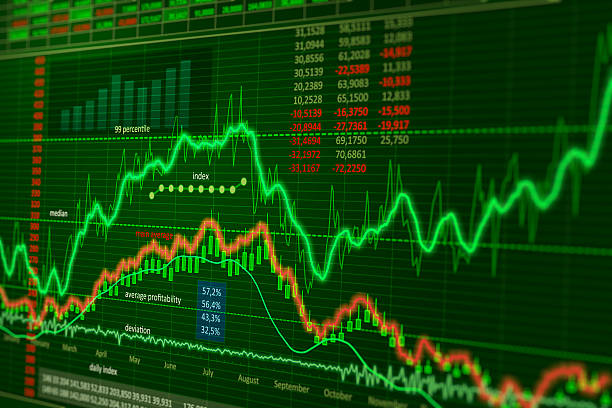Good Friday is one of the key holidays in many countries, especially in the Christian community, marking the crucifixion of Jesus Christ. It is a significant day in the liturgical calendar, observed with solemn services and religious practices. However, when it comes to the stock market, many investors often wonder, “Is the stock market open on Good Friday?” This question is especially relevant for those actively participating in trading and investment, as understanding the stock market’s schedule is crucial for planning trading activities. In this article, we will explore the stock market’s operations on Good Friday and why it matters to investors.
U.S. Stock Market Schedule on Good Friday
In the United States, the New York Stock Exchange (NYSE) and the Nasdaq Stock Market are two of the most prominent exchanges where stocks are traded. Both of these exchanges are closed on Good Friday. The reason for this is largely tied to the tradition of observance of certain public holidays, including those that hold religious significance, such as Good Friday. Good Friday falls on a Friday before Easter Sunday, and it is considered a public holiday in many regions of the United States. However, while most government offices and businesses are closed or operate with reduced hours, the closure of financial markets is governed by established holiday schedules. Good Friday is one of the major holidays observed by U.S. exchanges, and as such, no regular trading occurs on this day. This includes stock trading, options trading, and futures trading, all of which are suspended on Good Friday.
Is the Stock Market Open on Good Friday Internationally?
The situation is similar in other major financial hubs across the world. For instance, the London Stock Exchange (LSE) is also closed on Good Friday. This closure is a part of the wider tradition observed in many European countries that regard Good Friday as a day for reflection and religious observance. Additionally, many other European markets, including Germany’s Deutsche Börse and the Paris Euronext Exchange, also close on this day.
In contrast, some global markets, particularly those in Asia, may operate on Good Friday. For instance, the Tokyo Stock Exchange and markets in Hong Kong are generally open, as Good Friday is not a public holiday in many Asian countries. However, the trading volume might be lower due to fewer participants, particularly from regions where the holiday is observed.
Impact on Trading Volume
Although U.S. stock markets are closed on Good Friday, it’s important to note that the closure does not significantly affect the market in terms of long-term trends or stock prices. Investors are aware of the closure well in advance, so they typically adjust their strategies and trading plans. Before Good Friday, traders often increase their trading activities, causing higher volumes, while international markets may see reduced activity on the holiday, leading to wider bid-ask spreads and increased volatility in thinner markets.
Why Are U.S. Stock Markets Closed on Good Friday?
The U.S. stock markets close on Good Friday due to tradition, following a holiday schedule that includes religious holidays like Good Friday, despite the market being secular. The closure is not financially motivated, but rather respects the observance of Good Friday by investors and financial institutions. Historical closures for religious holidays have become more selective, with only a few major holidays affecting the schedule. Good Friday remains a common day of rest for traders and investors as recognized by the NYSE.
Trading Alternatives on Good Friday
For those looking to trade on Good Friday, there are alternative markets that may remain open. While U.S. stock markets are closed, investors can consider trading in the global markets that operate on the holiday. Asian exchanges like the Tokyo Stock Exchange operate during Good Friday, and electronic platforms offer access to global markets. Brokers allow after-hours and pre-market trading, but less liquidity may make executing trades at desired prices harder than in standard hours.
Should You Be Concerned About Good Friday’s Market Closure?
Long-term investors usually overlook the Good Friday market closure, as they prioritize broader trends, economic conditions, and corporate earnings over daily market movements. Therefore, while the market closure may affect short-term traders, it’s unlikely to have much impact on long-term investors.
Conclusion
In summary, the U.S. stock markets are closed on Good Friday, and this is consistent with the holiday schedules of many other major financial exchanges around the world. While some international markets remain open, trading volumes tend to be lower due to reduced participation from countries observing the holiday. For most investors, is the stock market open on good Friday is not a significant event, and it should be anticipated as part of a broader understanding of market holidays. Whether you’re an active trader or a long-term investor, it’s essential to plan ahead and make informed decisions to ensure that your trading activities are not unduly affected by the closure.

